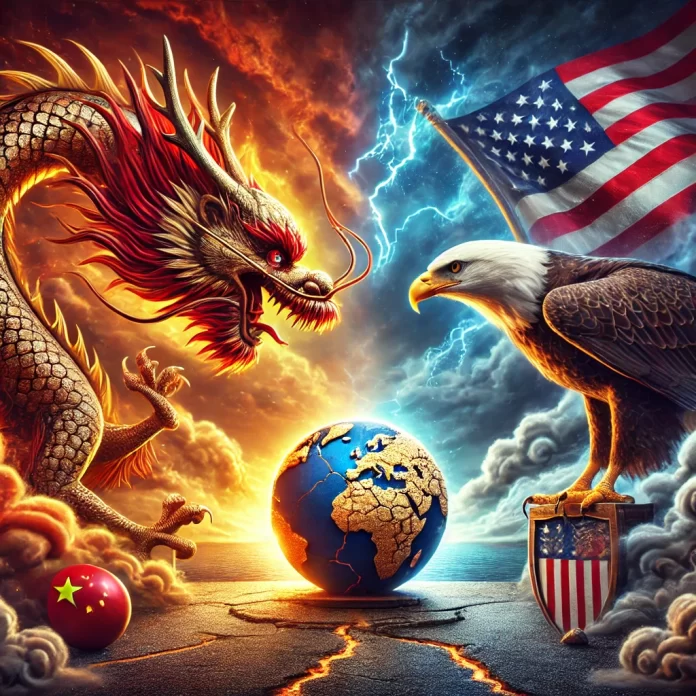The relationship between China and the United States has taken another tense turn following U.S. President-elect Donald Trump’s announcement of a new sanctions strategy.
Trump’s Tariff Plan Targets China
Trump revealed his intent to impose an additional 10% tariff on Chinese goods, a move aimed at combating the fentanyl crisis in the U.S.
Fentanyl, a potent synthetic opioid, has been at the center of a drug epidemic in the United States. Known for its medical use as a painkiller, fentanyl has also been misused, causing thousands of overdose deaths. In 2021 alone, fentanyl overdoses accounted for more than 70,000 fatalities in the U.S., making it a major public health concern. Trump’s plan, he claims, is a bold step to hold China accountable for the alleged smuggling of fentanyl precursors into the U.S.
This announcement signals a continuation of Trump’s hardline stance on trade and narcotics issues, which has defined much of his political agenda.
Trump’s Massive Tariffs Plan: 25% for Neighbors, 10% Extra for China Imports
The 10% tariff plan, however, is not just about economics; it also places China in the spotlight over its role in the fentanyl crisis, a topic that has strained relations between the two nations.
China’s Firm Rejection of Allegations
China has not taken these accusations lightly. Liu Pengyu, a spokesperson for China’s embassy in the U.S., responded strongly, emphasizing the importance of cooperation and mutual benefit in trade relations. According to Liu, trade wars serve no one, and a conflict between two major economies would lead to significant global repercussions.
Liu highlighted China’s ongoing collaboration with the current U.S. administration under President Joe Biden. He noted that China has made strides in addressing narcotics trafficking through agreements to enhance law enforcement cooperation. In his statement, Liu firmly denied allegations that China deliberately allows fentanyl precursors to flow into the U.S., calling these claims baseless and contrary to the facts.
China Warns EU Over EV Tariffs: Retaliates with Dairy Product Probe
China has reportedly shared detailed updates with the U.S. on its actions against fentanyl trafficking. Despite this, Trump’s proposed tariffs suggest that these efforts are not seen as sufficient by his administration.
Trump, undeterred by the backlash, doubled down on his plans, insisting that tougher measures are essential. Through his social media platform, Truth Social, he announced additional tariffs targeting not just China but also neighboring countries Mexico and Canada. Trump’s plans include a 25% tariff on all imports from these nations, effective shortly after his inauguration in January 2025.
Global Trade War Looms
Trump framed these new tariffs as a way to pressure trading partners to take stronger action against drug trafficking. Specifically, he called on Mexico and Canada to play a more decisive role in addressing issues that affect the U.S., including the fentanyl crisis. He declared that both nations would face steep economic consequences unless they acted swiftly.
China Warns Germany Over Provocative Taiwan Strait Passage
The proposed tariffs are part of Trump’s broader economic vision, which centers on protecting American industries and jobs. He believes that tariffs not only generate tax revenues but also safeguard domestic interests. Throughout his political career, Trump has maintained that such measures do not harm American consumers but instead place the burden on trading partner nations.
However, experts warn that these policies could have far-reaching consequences. Trump’s tariff plans are expected to provoke strong reactions from China, Mexico, and Canada, all key players in global trade. A renewed trade war could disrupt existing economic relationships and further strain ties between the U.S. and its partners.
China’s strong warning about the dangers of a trade war reflects its concerns about escalating tensions. Both countries are vital to the global economy, and any prolonged conflict could have ripple effects worldwide. With Trump’s firm stance and China’s sharp rebuttal, the stage is set for a potential showdown that could redefine international trade dynamics.


